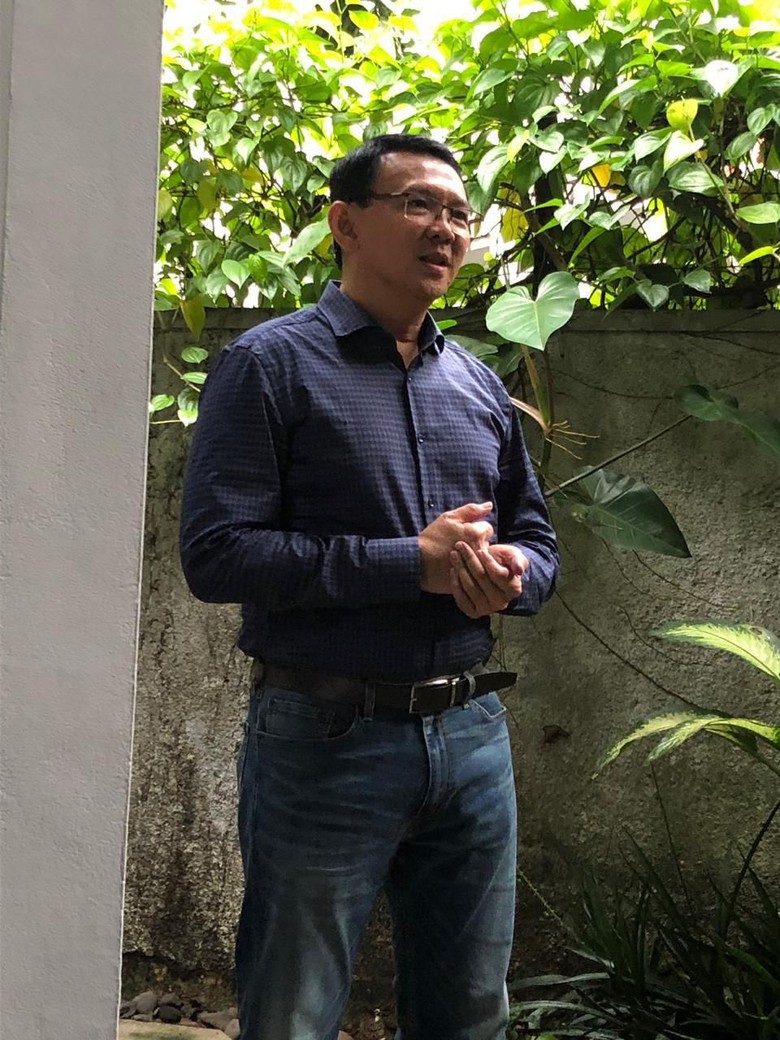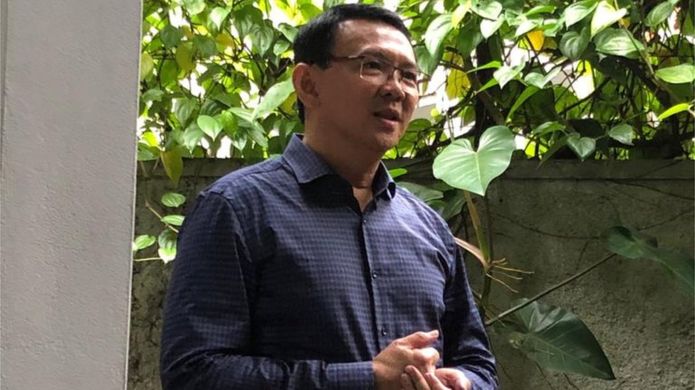The long-awaited release of former Jakarta Governor Basuki “Ahok” Tjahaja Purnama (who we’ll refer to as “BTP” from now on, to comply with his wishes) has finally happened, and he seems to have done it while escaping the attention of journalists and crowds of supporters waiting to witness the event outside Mako Brimob detention facility in Depok this morning.
Ahok’s exit from Mako Brimob was confirmed by one of his personal aides, Ima Mahdiah.
“Bapak Basuki Tjahaja Purnama (BTP) left Mako Brimob Kelapa Dua at around 7:30am,” Ima wrote in a text message, as picked up by BBC Indonesia.
“He was picked up by his oldest son Nicholas and representatives of the BTP team (personal assistants) and headed straight to his residence.”
BTP’s personal aides also released a photo of the former governor this morning — his first photo post-release — showing him looking well and “macho” as one of his political allies once put it.

It’s not clear when BTP will speak to the public for the first time following the end of his incarceration, but the rumor among journalists is that he will do so from his North Jakarta home later in the afternoon.
Numerous hashtags welcoming BTP’s release have dominated the social media conversation in Indonesia today, such as #WelcomeBackBTP, #BTPpulang (BTPhascomehome) and #AhokBebas (AhokFreed).
The series is complete and fullfill your destiny #WelcomeBackBTP pic.twitter.com/M34tXQfYyF
— Hengky Kayori (@Kayori_Hengky) January 24, 2019
https://twitter.com/AndriKay/status/1088228997849202688
Jakarta’s former governor was released from prison after nearly two years (he was given a 3.5-month sentence reduction due to good behavior and holiday remissions) after being convicted on blasphemy charges that fanned fears over religious intolerance in the world’s biggest Muslim-majority nation.
BTP — the Indonesian capital’s first non-Muslim governor in half a century and its first ethnic Chinese leader — had been a popular politician who won praise for trying to clean up the traffic-clogged megacity and clamp down on corruption.
But his downfall came quickly after comments he made on the campaign trail during a re-election bid saw him accused of insulting Islam.
His filmed remarks which went viral online sparked mass protests in Jakarta, spearheaded by radical groups opposed to a non-Muslim leader and encouraged by his political rivals.
He lost the election to a Muslim challenger, Anies Baswedan, and was then sentenced to two years’ jail in May 2017.
It was an unusually harsh sentence — prosecutors had only recommended probation for the now 52-year-old.
His case drew international headlines and a wave of criticism including from the United Nations which urged the country of 260 million to revise its decades-old blasphemy law.
The charge against BTP centered on a remark he made to voters about his Muslim rivals using a Quranic verse to trick people into voting against him, which judges ruled amounted to blasphemy against Islam.
The huge demonstrations calling for Ahok’s jailing fuelled concerns about the growing influence of religious hardliners and that the Southeast country’s much-vaunted tolerant brand of Islam was under threat.
Indonesia’s blasphemy law states that anyone found guilty of “expressing feelings of hostility” towards religion can be jailed for up to five years.
It applies to any of six officially recognized religions, including Christianity, Buddhism and Hinduism, but most prosecutions are brought against people accused of blaspheming Islam, which is followed by nearly 90 percent of the population.
Among them was an ethnic Chinese Buddhist woman found guilty in August of insulting Islam for asking her neighborhood mosque to lower its sound system. She was sentenced to 18 months in jail.
The woman’s comments about the mosque noise triggered riots in 2016 that saw angry Muslim mobs ransack Buddhist temples.
Some ethnic Chinese in the area fled in fear.
With additional reporting by AFP





Reader Interactions